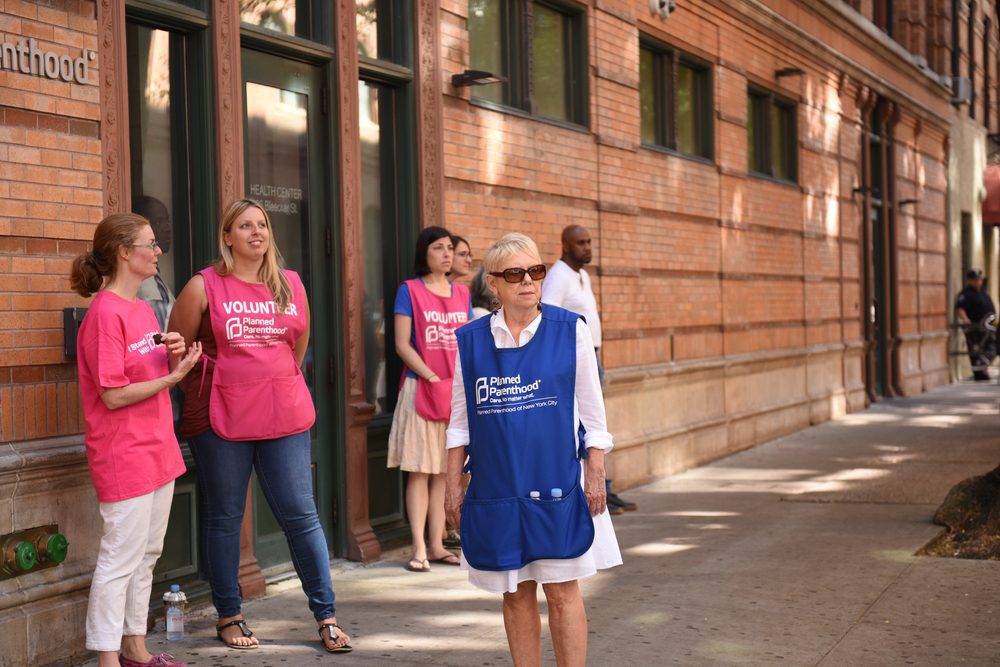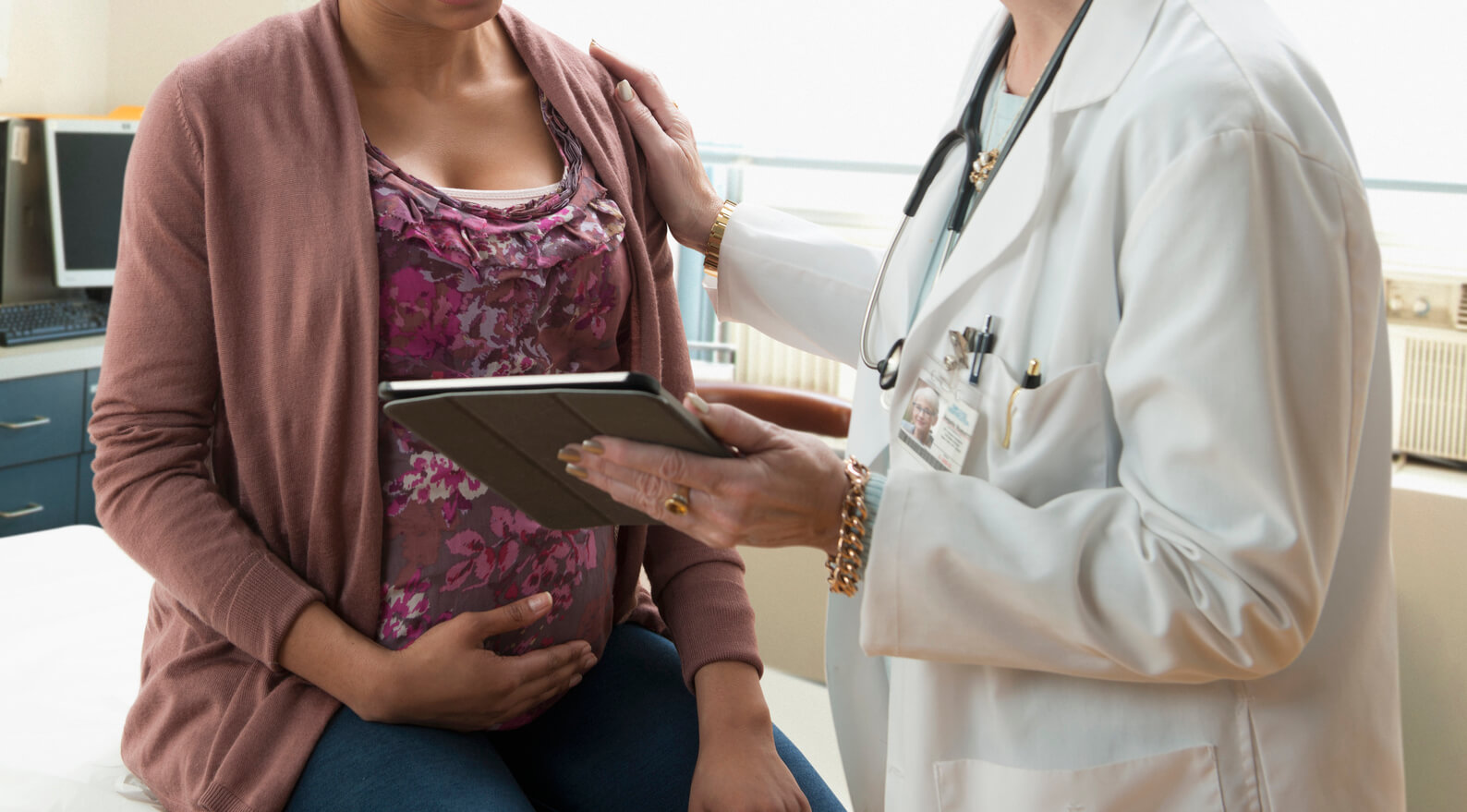
Iowa Gov. Kim Reynolds signs a new law banning abortions after six weeks of pregnancy before speaking at the Family Leadership Summit, Friday, July 14, 2023, in Des Moines, Iowa. (AP Photo/Charlie Neibergall)
Homicide is one of the leading causes of death during pregnancy. These Iowa experts say banning abortion makes life even more dangerous for domestic abuse survivors.
Before the end of June, the Iowa Supreme Court will decide if a near-total abortion ban can take effect across the state.
That makes people like Lindsay Pingel and Alta Medea worried for a group of people who are made especially vulnerable by abortion bans: survivors of domestic abuse.
“Each barrier that we place in front of a victim survivor in order for them to have bodily autonomy, to have access to health care, to have access to support systems and resources just keeps them more and more in that isolated and controlled state,” Medea said.
As the director of community engagement for the Domestic Violence Intervention Program in Iowa City, Medea knows how abortion bans impact domestic abuse survivors. So does Pingel, who is the director of community engagement at the Iowa Coalition Against Domestic Violence.
“Homicide is the leading cause of death during pregnancy for all females who are of reproductive age in the US,” Pingel said. “Any time there are restrictions put in place that affect not only a survivor but anyone’s need for reproductive health care, it is a huge concern for us.”
Rates of domestic violence homicide increase in states whenever barriers to abortions are put into place. If the state supreme court upholds Republican Gov. Kim Reynolds’ ban, both Pingel and Medea say domestic violence survivors across Iowa will be in a dangerous position.
How abusers benefit
Abortion is currently legal until 20-21 weeks, but the pending ban would put an end to all abortions that happen after electrical pulses are found in an embryo—falsely called a “fetal heartbeat” even though there is no physical heart at this stage of pregnancy.
Those pulses can happen as early as six weeks from the first day of someone’s last menstrual period, before most people know they’re pregnant. More than 90% of abortions in Iowa happen after that point.
Domestic abuse worsens—or begins—when unplanned pregnancies happen. Because most people learn they’re pregnant between four and eight weeks, this ban would trap many people in unplanned pregnancies and in abusive situations.
This near-total ban also increases the threat of another type of abuse called reproductive coercion. This involves an abuser forcing a pregnancy by tampering with birth control, refusing to use it, forcing sex, or keeping women from seeking health care.
The goal is to keep a survivor in the abusive relationship, or to create permanent ties between the survivor and the abuser.
“It is absolutely no different than physical violence, emotional abuse, economic abuse,” Pingel said. “Reproductive coercion is just really looking at their survivor and trying to control health care decisions that should be left up to them and their medical provider.”
A frequent Republican talking point is that abortion bans protect domestic violence survivors from being forced to have abortions. In fact, that was a top motivator in Louisiana, where Republican lawmakers successfully reclassified abortion medication as a controlled substance in order to limit access to it.
Medea said that’s not the reality she sees.
“Anecdotally, I can say what we’ve heard from victim survivors is more of the opposite,” she said. “What we’re hearing from the victim survivors we’re working with is that it is more that [abusers] are trying to get them pregnant, not to force them into having an abortion.”
Abortion bans force ties with abusers
Domestic abuse survivors often report two motivators for seeking an abortion: keeping a child away from the abuse, and wanting to get out and cut ties with their abusers.
Abortion bans make both more difficult—an ideal situation for keeping abusers in control of their victims.
“Perpetrators are able to utilize the court systems to manipulate and coerce that victim survivor through keeping them in custody hearings and bringing them back to court over and over again,” Medea said.
Does research back this up? Yes
A study published in May by researchers at Tulane University found that for every abortion restriction that was enforced, there was a 3.4% increase in homicides related to intimate partner violence.
The researchers concluded that domestic violence against women of reproductive age is likely to increase over the coming years, given “the current context of substantially less or no access to abortion care.”
Another study, published in May in the “Journal of the American College of Surgeons,” confirmed that rates of homicide against people who are currently pregnant or who have given birth within the past year are higher in states that restrict abortion access.
The study also found: “the opportunity to end a pregnancy has been shown to be protective against continued [intimate partner violence], and previous studies have concluded that local access to safe abortion care reduces [intimate partner violence].”
These rates are observed among several demographics, but women of color are impacted the most by domestic violence turning into homicide.
Behind the ban
When the near-total abortion ban passed last year, no Iowa Democrat voted for it.
When it was debated on the floor, Democrats offered a dozen amendments to make small improvements—one to remove reporting requirements for rape and incest for example—but each was shot down by Republicans.
Iowa Republicans have defended the ban by saying Iowans elected them to pass it, but in reality polling has long shown strong majorities of Iowans think abortion should be legal in all or most cases. The latest number is 61%.
If you or someone you know is in an abusive relationship call 1-800-770-1650 or text ‘IOWAHELP’ to 20121. You learn more about the Iowa Coalition Against Domestic Violence and the Domestic Violence Intervention Program and the resources they offer on their websites.
Support Our Cause
Thank you for taking the time to read our work. Before you go, we hope you'll consider supporting our values-driven journalism, which has always strived to make clear what's really at stake for Iowans and our future.
Since day one, our goal here at Iowa Starting Line has always been to empower people across the state with fact-based news and information. We believe that when people are armed with knowledge about what's happening in their local, state, and federal governments—including who is working on their behalf and who is actively trying to block efforts aimed at improving the daily lives of Iowan families—they will be inspired to become civically engaged.


House GOP fast-tracks budget bill that would cut off Medicaid funding to Planned Parenthood
The budget package proposes steep health care cuts—and includes a new push to block patients from accessing reproductive care. In a 30-24 party-line...

Report: Majority of pregnancy-related deaths in Iowa could have been prevented
A newly released report found that 95% of pregnancy-related deaths in Iowa were preventable, and those deaths disproportionately affected women who...

Shattering stigma: Iowa woman shares her abortion story to empower others
There are different types of people who seek abortions. Here is the story of one of those women—the everyday woman who accidentally got pregnant....

New Iowa bill would ban abortion pill, sparking backlash
Republican proposes bill to effectively end 74% of abortions in Iowa by banning a pill that’s safer than penicillin and Viagra. Seventy-four...

Way more Americans are getting sterilized since Roe was struck down, research finds
A new study has found that from May to August 2022, vasectomies surged by 95% and tubal sterilizations increased by 70% among adults ages 19 to 26....

People are leaving states with abortion bans, according to study
A new analysis from the National Bureau of Economic Research found that since 2022, states with near-total abortion bans appear to have lost 36,000...





